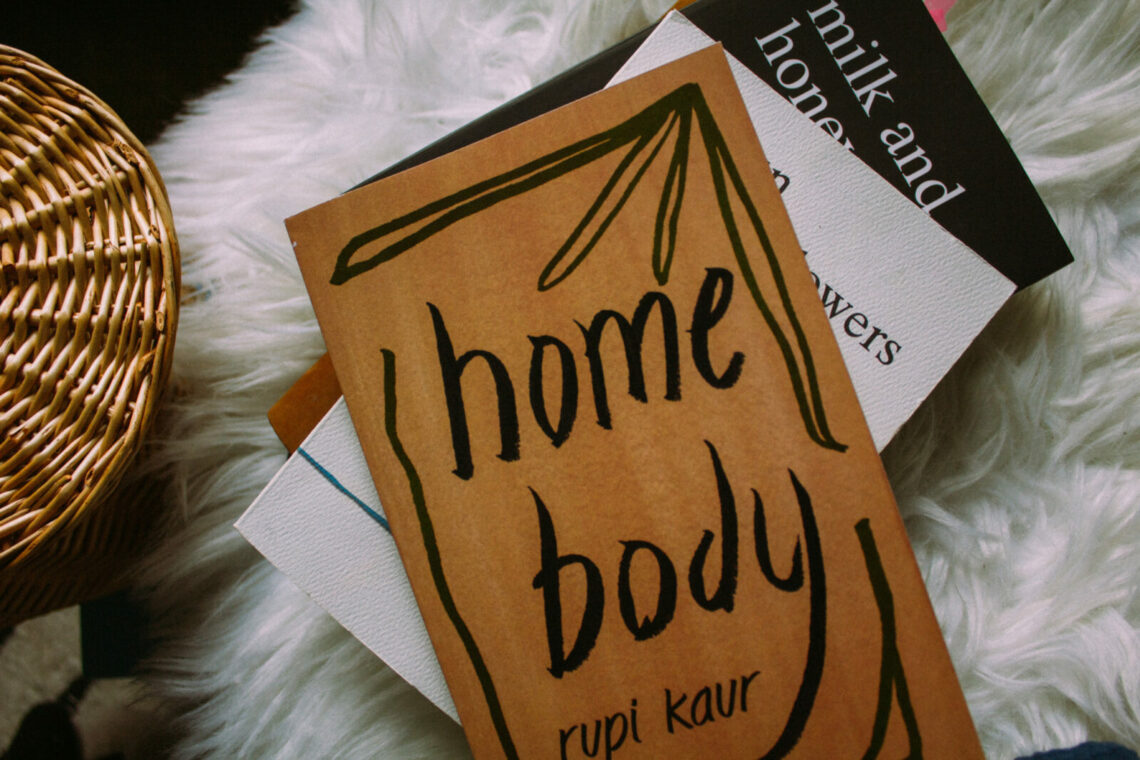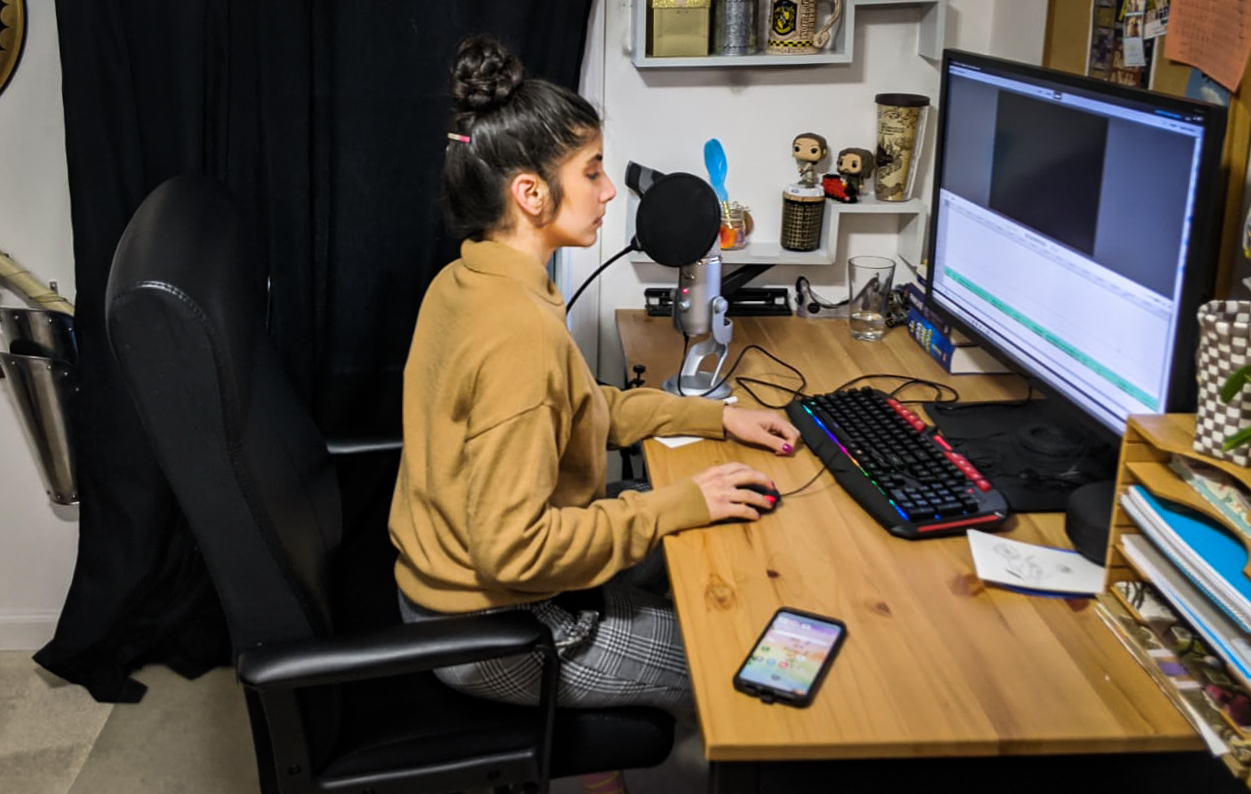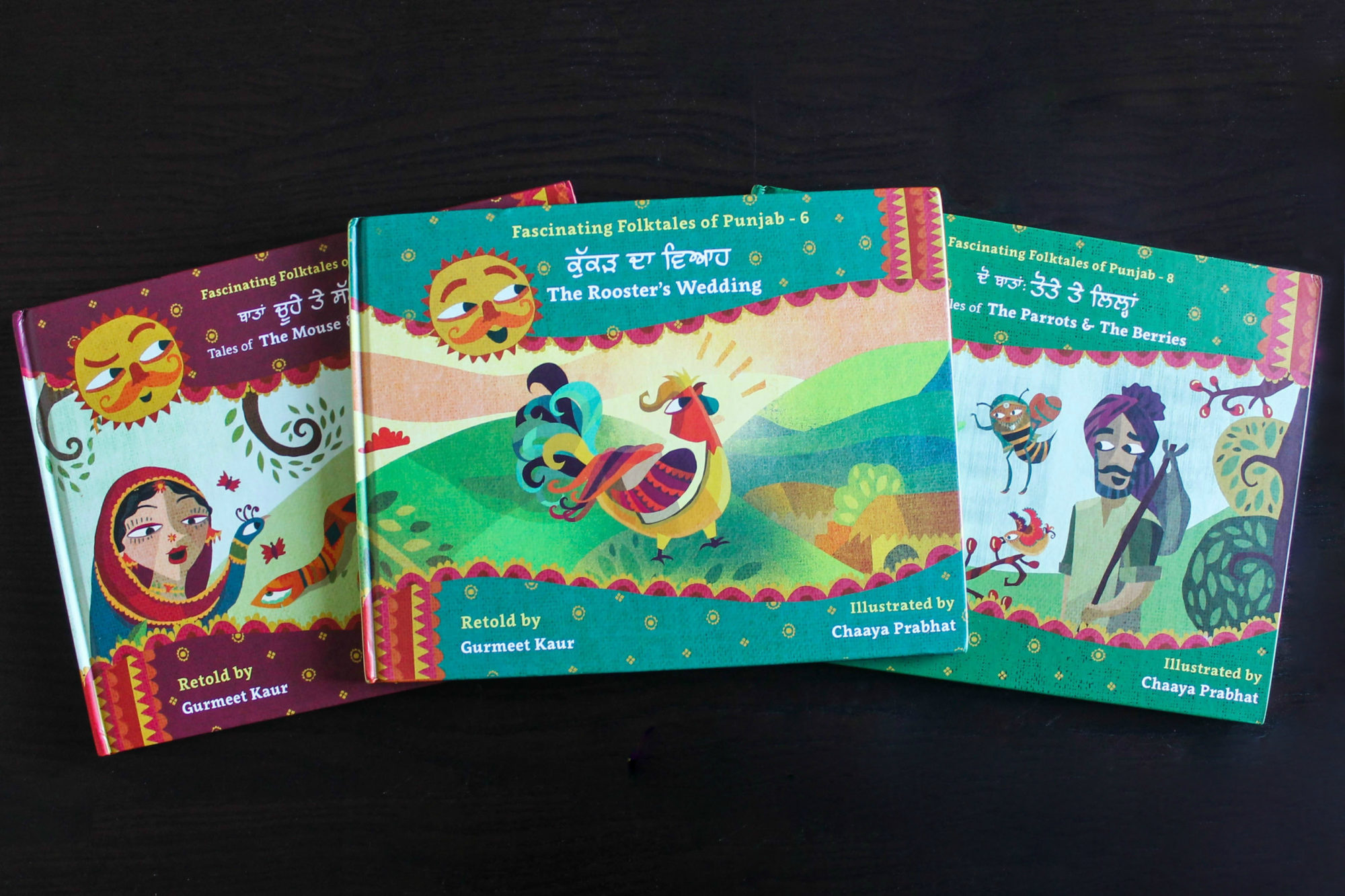by Simi Kaur
Trigger Warning: Rape, abuse, and violence.
Home Body – a new chapter in Rupi’s life
Rupi Kaur’s previous poetry books, “Milk and Honey” and “The Sun and her Flowers”, captured her moments of youth. In her her latest book “Home Body”, Rupi shares her journey as a woman between 2018-2020.
“Home Body” dives deeper into Rupi’s own life struggles more than any of her previous work. Here, we see more raw emotion and frustration of her journey in the past two years. Which is why I feel it will resonate with you regardless of who you are, because we all face similar challenges.
“Home Body” touches on four key stages: mind, heart, rest, and awake. Each stage represents a significant part of Rupi’s struggle. I found this structure to be interesting as it depicts the process of trauma, development, growth, and eventually acceptance. These are inner battles that many Kaurs have had to deal with or will deal with. Rupi has the ability to make you feel like you belong, like she understands our struggle.
Mind
The chapter “Mind” reflects on depression, rape, negative thoughts, self-deprecation, and mental health. Rupi talks about how the mind is often what blocks you, but also what frees you. Being a survivor of abuse can lead to negative thoughts consuming your mind. This can be dangerous and triggering when interacting with negative people.
Rupi is unafraid to discuss topics that are considered “taboo” in our culture, like rape. In my opinion, rape is not talked about enough in the South Asian community, and I stand firm in saying that this conversation has only begun. Like Rupi, more people should speak up and support survivors of sexual assault. When we do not address the trauma of rape, it becomes highly intrusive and can damage one’s self-esteem and self-worth. This toxicity is a cycle that can only be broken by the survivor, which is what Rupi concludes.
Mental health and wellbeing are overarching narratives in all of Rupi’s poetry. Reading her work makes me think about how responding to mental health in Punjabi communities must be intersectional and address factors that exacerbate inequalities like social, economic, and political realities. Rupi’s poetry re-affirms for me that while advocacy and awareness are important, we must also address the impact and root cause of trauma.
Heart
The chapter “heart” focuses on relationships, family, and worth. Rupi captures the trials and tribulations of romantic relationships; the heartbreak when losing someone close to you; and grappling with suffering. Time is something that may enable us to feel anxiety or depression, and when we feel that time is running out, we feel pressure, and eventually we just stop feeling. This is particularly acute when you are in an unhealthy relationship which Rupi reflects on:
i have difficulty separating
abusive relationships
from healthy ones
i can’t tell the difference
between love and violence
– it all looks the same
Rupi’s reflections on moving from the unhealthy and to the healthy felt personal to me as I myself have experienced toxic relationships with friends. A healthy mindset is the way forward and should be the gateway for 2021. This is a prominent theme when Rupi reflects on her own unhealthy relationships, including the one with herself.
Rest
The chapter “Rest” focuses on the need to take a break and look beyond labour and see humanity for what it is. Capitalism and work can overshadow self-care, purpose, and humanity. In some cases, when we begin working, we become workaholics, or machines. We become part of the capitalistic system that values production, which we end up succumbing to. Capitalism takes advantage of its workers, as Rupi describes:
i measure my self-worth
by how productive i’ve been
but no matter
how hard i work
i still feel inadequate
– productivity guilt
Rupi emphasis that we must realize that an addiction to work prevents us from understanding that humans need love, connectivity, and good health. This resonates with me deeply. I have been victim overworking, and under COVID lockdown I know that unemployment has affected me negatively. I began to doubt my skills and abilities, and impostor syndrome creeps in, making many of us forget our worth. Rupi reminds us to take a moment, to pause, to look at what is important, and to find yourself before you become immersed within this capitalistic scheme. We are already valuable, and we do not need a system to tell us otherwise.
Awake
“Awake”, Rupi’s concluding chapter, focuses on finding your voice and breaking the walls that have been built up. Rupi brings us back to the misogyny, terror, and trauma that we have all faced to some degree. But that despite it all, we made it through these tough times, she explains. Seeing the light is the reward for getting past hiccups in your life and having the will to keep going. These moments are what makes you stronger and help you appreciate everything you have, including the people you have in your own life.
For instance, everyone who lost a life for a cause deserves to be remembered, this is why Rupi dedicates a poem to the 1984 massacre of Sikhs:
I have a very complicated relationship
with the country i was born in
our men were
slaughtered in those streets
our women were raped
while thousands were tortured
and disappeared by police
the indian state denies what they did
but no amount of yoga or bollywood
can make us forget the
sikh genocide they orchestrated
– never forget 1984
This poem struck me the most since I am Sikh and of the Punjabi diaspora. While I take pride in my roots, diaspora and belonging are complex topics that a lot of us find hard to come to terms with, and Rupi articulates so well.
Conclusion
Building yourself up from traumas, like violence, rape, and depression, are challenging and life-changing. Rupi reminds us that no one can bring you out of the depths of despair except yourself. This is what she suggests in her metaphors, especially in her concept of the “God Self”. She reminds us to embrace our best selves, and to embrace the bad parts too – for both parts make us who we are today.
Accepting all parts of you no matter how ugly they are is a triumph not a failure. According to Rupi, this is the key to happiness, and closure. This is why this latest book of poetry from Rupi is a nice closure to her trilogy of poetry books, and why I highly recommend you read it.
I encourage Kaurs to continue sharing their stories like Rupi Kaur has done so that younger Kaurs may find the representation that we deserve.
About Simi Kaur

Simi Kaur is 22 years old, and a recent English Literature graduate from the University of Glasgow (2020). It is her passion and love for culture that drives her to become a voice for representation of Punjabi Sikh women. She want to be part of the representation she never had as a young girl.





2 Comments
Professor Surjit Singh Bhatti, PhD
03/16/2021 at 12:01 pmYour efforts are admirable. Do you accept articles written by men that highlight these (women’s) issues ?
Kaur Life
03/22/2021 at 12:58 pmWe do! Check out our submission criteria:
https://kaurlife.org/submit-your-work/